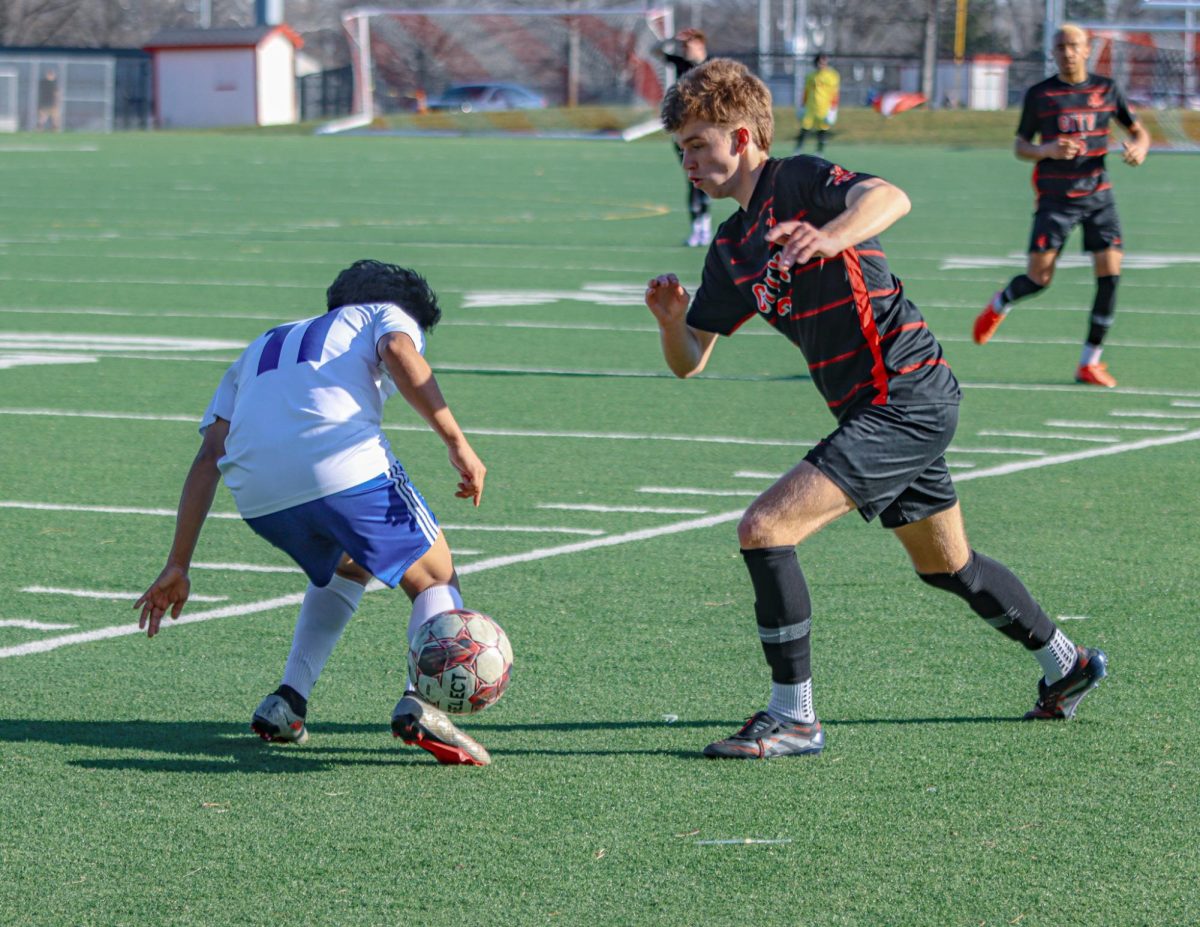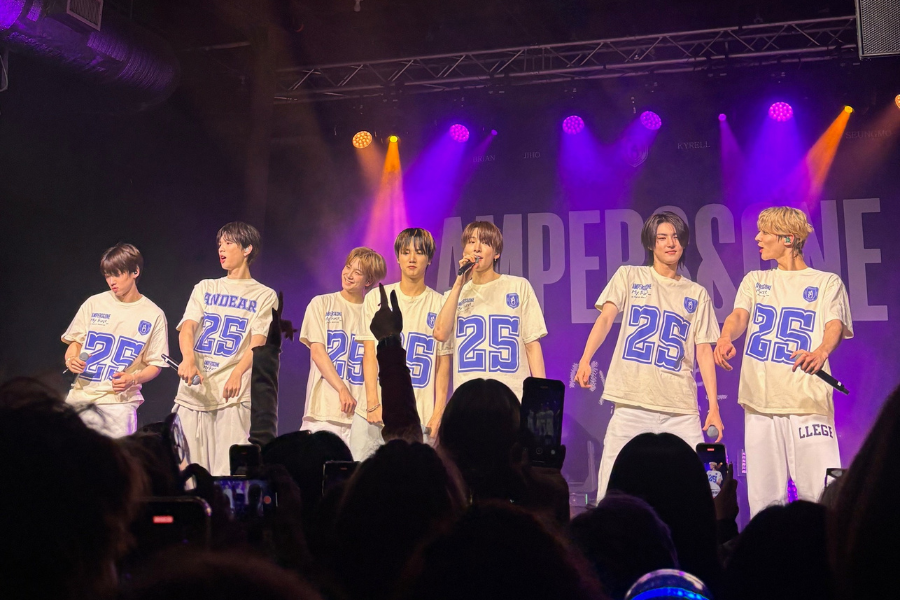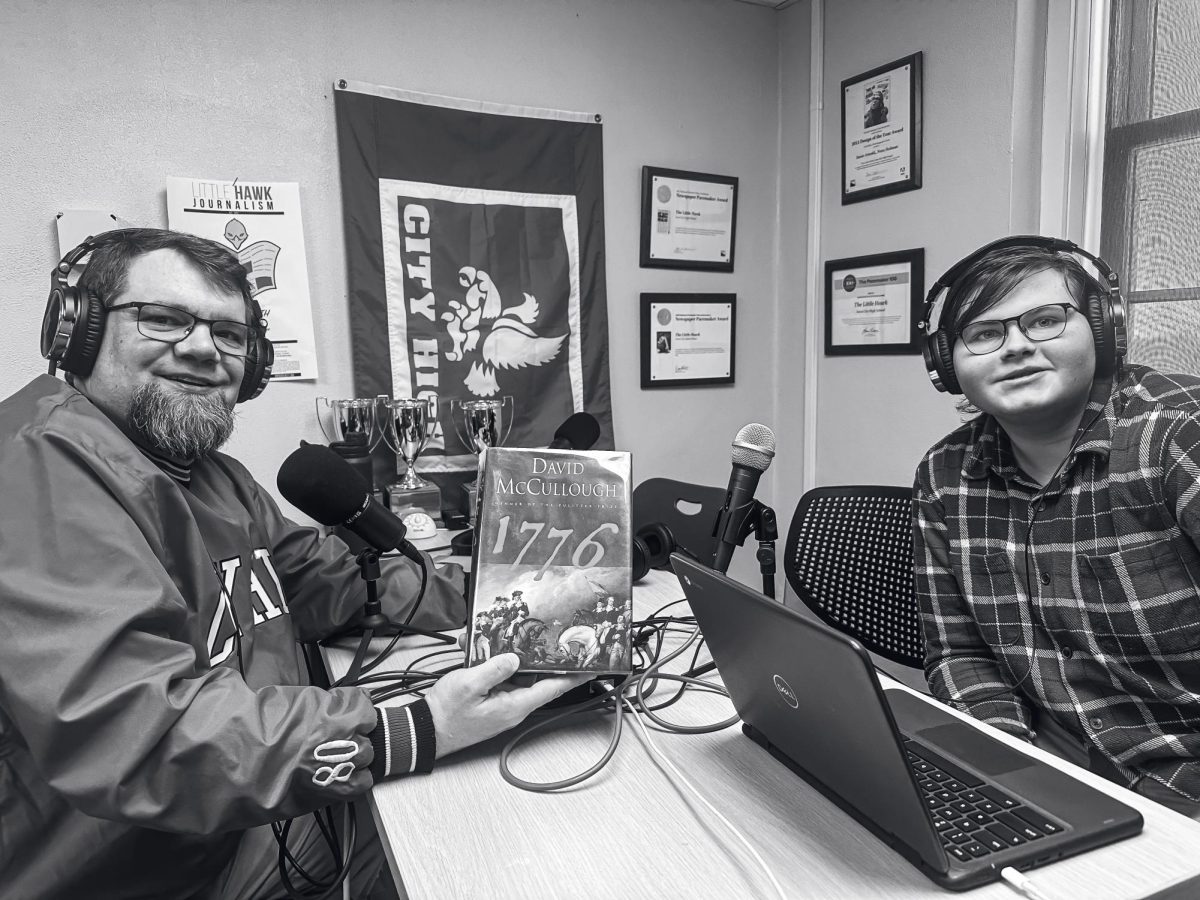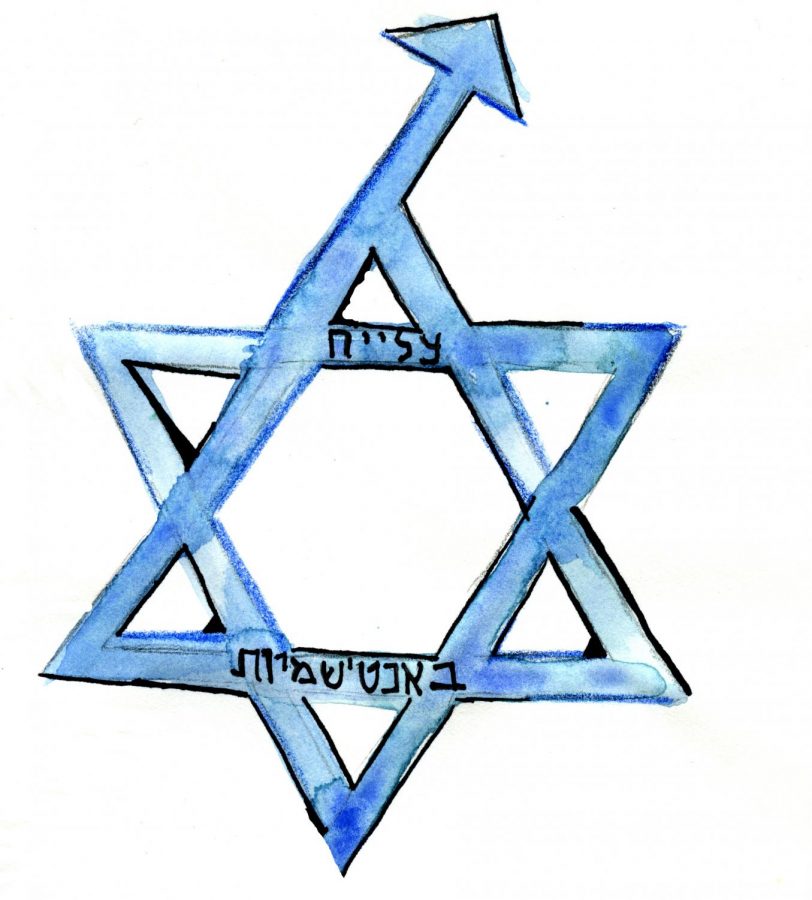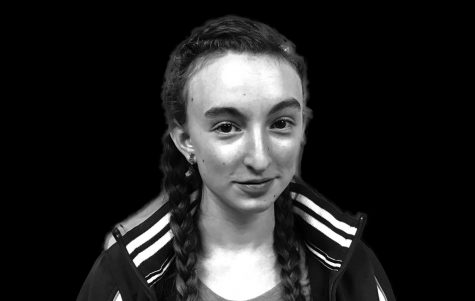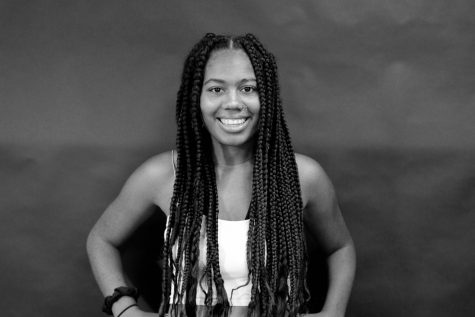On the Rise
Anti-Semitism is a form of discrimination many overlook, but it is an increasingly serious problem
May 2, 2018
Silver earrings with six-pointed stars adorned with teal opals, a necklace with the Hebrew letters chet and yud meaning ‘to life’, and a circular necklace with 18 diamonds. These are my beloved pieces of jewelry, and they have all been stowed away in the back of my closet. I am scared to wear them. I am scared to be called out for wearing jewelry with Jewish significance. I am scared I will be hurt for wearing them.
I have been bullied about my religion all my life. The term ‘anti-Semitic’ used to refer to discrimination against anyone from the Middle East. Now, it specifically refers to Judaism. It is a form of discrimination as toxic and as hurtful as any other, yet it is frequently ignored and put to the side because it is perceived as ‘not important.’
Judaism is unlike any other religion. There are religious Jews, who believe and worship a higher being, and cultural Jews, like me, who choose not to participate in the religious aspect, but follow traditions and rituals such as having a Bar/Bat Mitzvah and celebrating holidays. The only requirement to be Jewish is following a few simple rules in the Torah, all of which are ensuring you’re a good, well-rounded person. The way Judaism is set up is one of the reasons I am so proud to be Jewish. Another interesting aspect of Judaism is that 0.2% of the world population are Jewish and 49% of the world Jewish population lives in the United States. Judaism was the first monotheistic religion to exist, yet the fewest people follow it. Rabbis actually try to sway people from converting to Judaism, not because they think someone should not be Jewish, but because Rabbis want to ensure that person truly wants to commit to being Jewish. Anyone is welcome, but there are many steps to take to become part of the religion and culture, like courses and rituals. Another reason to be swayed away from converting to Judaism is having to always be on the ready to defend yourself and all other Jews. Since Jews are such a small minority, there aren’t many people who have the same experiences as you do.
I used to reveal almost instantly to new acquaintances that I am Jewish, but as time has progressed and anti-Semitism has become more prevalent—after 2017 saw acts of anti-Semitism rise by 57% on a national level—I now only tell people when they ask, which rarely happens. In seventh grade, when my class studied world religions, my teacher skipped Christianity. When it came time to take the test, I couldn’t answer any of the questions over it. When I told my teacher, he answered that I should “know these because you’re Christian, right?” I stared at him in shock for a moment, then told him that I’m not, in fact, Christian. I understand that you can’t always physically see if a Jew is different than you—people will wish me Merry Christmas or Easter, when I celebrate Hanukkah—but it’s not all right to assume that everyone around you is Christian, just because they don’t ‘look’ like a Jew. I can pass as your average white Christian when needed to protect myself. I have the ability to hide myself from whomever I please. Being a hidden minority is an experience that is not easy to explain because it’s a hard place to be in. As I said before, I am a hidden minority. I can pass for the majority with no issues, if I want. I can hide when need be. I have always viewed the world from the perspective of being part of a minority, but someone wouldn’t know I was one unless they asked.
A common Jewish slur is ‘k*ke,’ meaning a ‘Christ killer.’ It has the same weight as the N-word, but some people throw it around as though it were acceptable, which it is not. I have been called this slur before, but no one around me said anything–none of them knew that it was so offensive, and how much it hurt to be called that. President Trump has made multiple anti-Semitic and racist comments without concern, such as when he called Jewish reporter Chuck Todd ‘Sleepy Eyes,’ an anti-Semitic slur used by Nazis during the 1940s. But Trump is no surprise; he’s not exactly known for being socially accepting. There are many others, people we idolize, such as Michael Jackson. People say that “he didn’t mean it because he apologized,” but Michael Jackson put slurs into his song lyrics, and he made a ‘joke’ about his banker being Jewish.
Jokes are supposed to be funny, right? Joking about gas chambers and yellow fabric stars and the systematic murder of 8 million people is funny, right? Well, here’s a shocker: no, it’s not. Genocide is not funny. I have family who died in the Holocaust. Anti-Semitism didn’t die with Adolf Hitler, and neither did fascism or Nazism. The nearest neo-Nazi group to Iowa City is in the Amana Colonies in Iowa, which my family and I visited two weeks prior to the white supremacist rally in Charlottesville, Virginia. Finding out that a neo-Nazi group was so close to me, to my people, to my synagogue, was one of the most devastating things I have ever had to experience. The rally in Charlottesville was a white supremacist rally, but many participants were shouting anti-Semitic slurs, such as “blood and soil,” “Blunt and Boden,” “Jew will not replace us,” “White lives matter,” and “one people, one nation, end immigration,” while some of them even carried flags with swastikas on them. Nazis and Nazi supporters used many of these slurs were during World War II in the persecution of Jews.
Next year, my family and I are going to visit Israel. My parents decided to take the cheapest option for the flights, stopping in Germany, but I refused. We are frequently recognized as a ‘Jewish-looking’ family, especially accompanied by my grandfather, who is from Israel himself. Despite the fact that Germany is legislatively one of the least anti-Semitic countries in the whole world, socially it is still one of the most anti-Semitic. For example, last week a German official advised that Jews should not wear kippahs in public due to Jewish children being stoned on their way to and from school. Germany still makes me uncomfortable to enter as a Jew. Even in the U.S., I have to think about everything I say, wear, and do, 24 hours a day, seven days a week, in order to make sure I am safe, and it’s much worse in Central and Eastern Europe. Poland recently created a law stating anyone who thinks the Polish government was complicit in the Holocaust during World War II would be fined. In the past month, there have been six reported acts of anti-Semitism in France alone. Austria has a neo-Nazi party in their current government, along with Greece and Turkey–and even the United States has neo-Nazi groups.
Being Jewish is a culture frequently linked to ethnicities from the Middle East. And, just like many ethnicities, it is not always treated with respect or equity. Racism is an ever-evolving concept, growing more and more complex. Being white is a privilege beyond just the color of your skin. It also means being Christian, and rich. Being Jewish I’m always on guard for the next incident with a peer or someone else in the world. Being a hidden minority can be a blessing and a curse. It makes me feel safer around others, but I’m also denying a big part of my identity–my religion, my race, and my culture. I know the color of my skin is white, but the history of my religion and heritage is permeated with discrimination, and if people know I’m Jewish then the assumptions will start rolling in.
Judaism is no stranger to stereotypes: long noses, relatives being doctors or lawyers, being rich, dark curly hair, always speaking Yiddish, and wearing ‘those little hats’ (kippahs). I have been asked about my financial status and my nose more than anyone would like to imagine. No, I’m not rich. Yes, I may have nice things, but I buy all of my own clothing, my money comes from me and my hard work, not my parents. I’ve been called a JAP, Jewish American Princess, meaning my parents are filthy rich and buy me anything and everything I want. This isn’t a funny or endearing term, nor is it accurate. If I want something, I work hard, get paid, save up, and buy it.
Judaism is a beautiful and ancient religion, but it is so often looked down upon and hated. The first step to fighting anti-Semitism is education. We have to teach students that not everyone is the same and educate people about religions and beliefs in order to do away with these stereotypes and misconceptions. Even if Judaism isn’t meaningful to the curriculum, it’s meaningful to me, and it’s meaningful to the 15 million other Jews worldwide.











